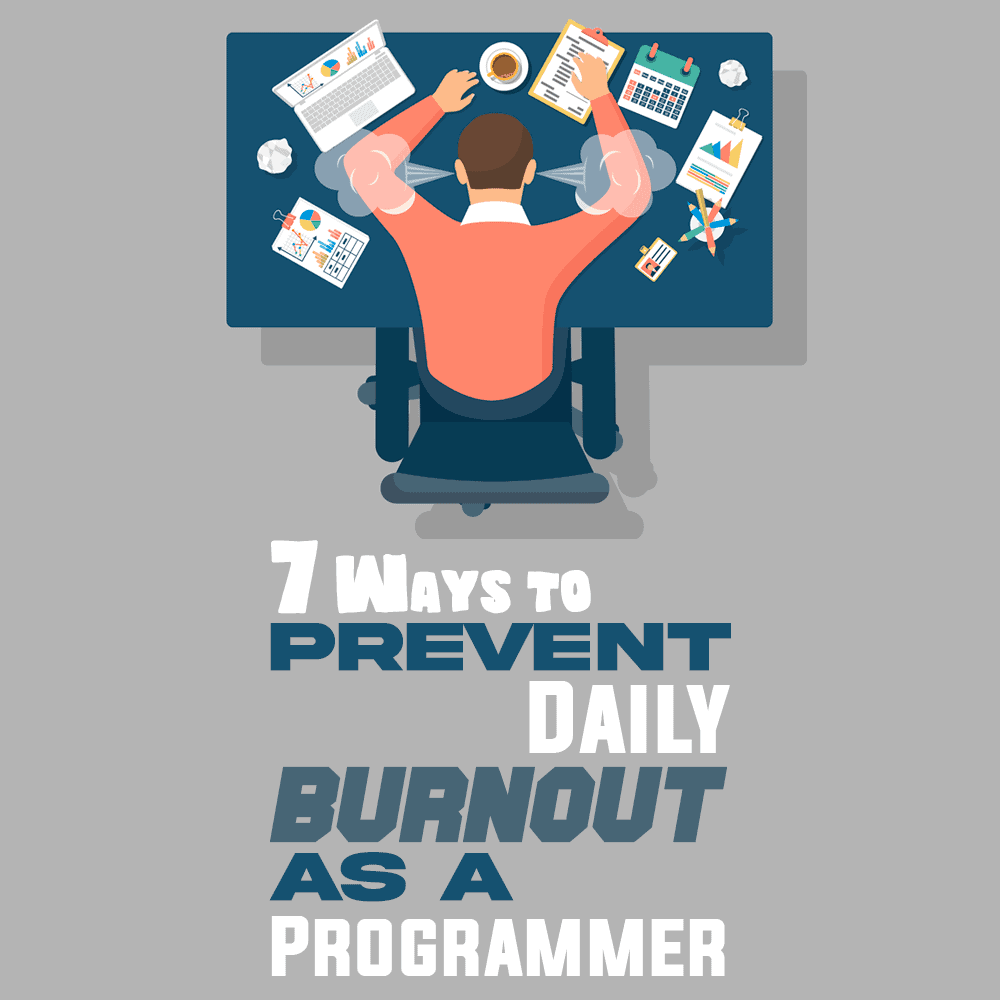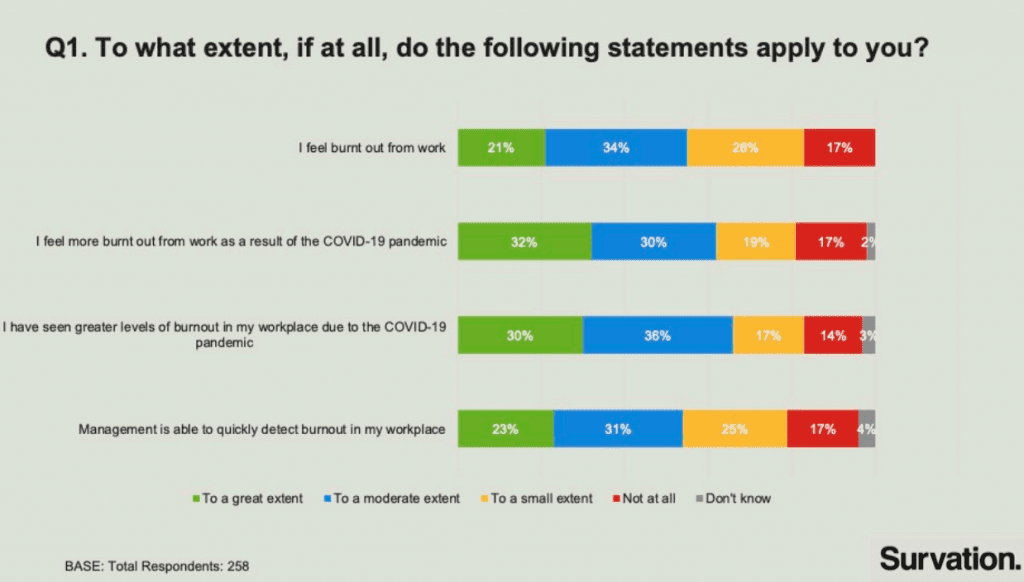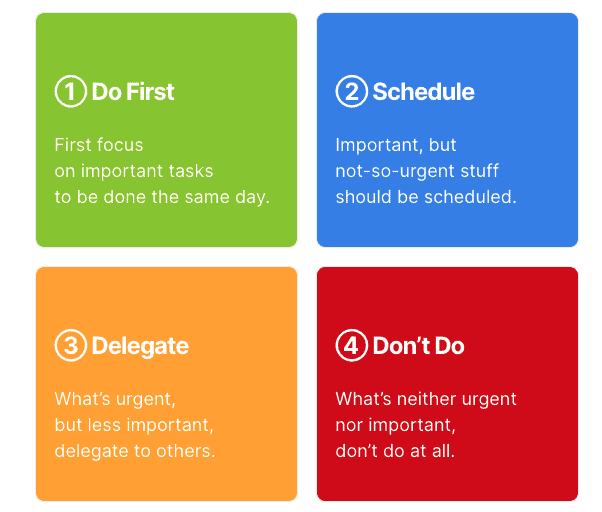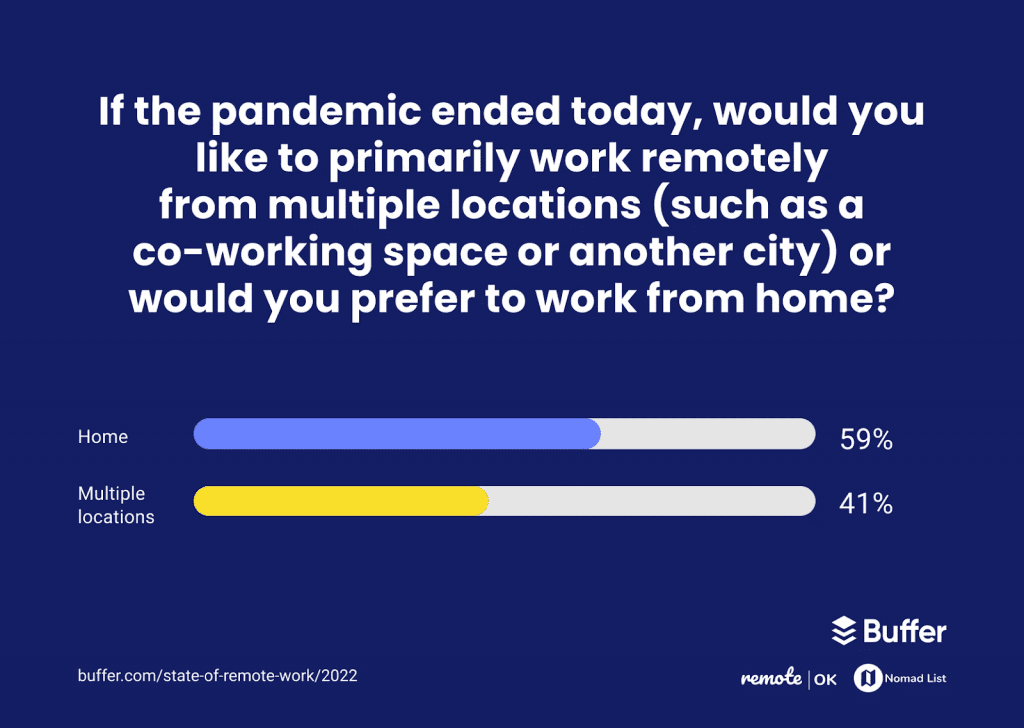
Yet it comes with its own set of stress and workload. If you’re a programmer—or considering becoming one—you need to know how to prevent daily burnout and find ways to manage your work-life better.
But what is daily burnout and how is it different from general burnout?
General burnout typically builds up over time and then reaches a breaking point. However, daily burnout is different in that each day is a battle. You may feel broken and might get overwhelmed easily.
This happens on a day-to-day basis, rather than as a build-up over a long time.
Burnout is way too common when it comes to programmers. About 83% of software engineers reported burnout. Among these, 55% said that they felt burnt out to a great extent.

Even if you haven’t faced burnout yet, it’s important to know what you should be doing to keep it that way. It is important to not only recognize burnout, but also to find ways to prevent it.
Why Do Programmers Face Burnout?
Before we delve into how you can prevent daily burnout, it’s important to understand why programmers face burnout in the first place. Here are some of the reasons:
- High Pressure. You might face daily burnout as a programmer because of immense work-related pressure and stress. Programming is a stressful job and can cause mental fatigue, as it’s cognitively intense. And short deadlines can make things worse for programmers.
- Low Mobility. Unlike other non-desk jobs, programming requires you to be seated at a single place for hours. You have to sit in front of a computer all day every day, and this physical inactivity can make you feel lethargic and tired. In turn, this could lead to unhealthy lifestyle habits, which could cause resentment and lead to feelings of burnout.
- Unrewarding Job. You may have joined your current job for a range of reasons. However, there’s a chance that you might not find it very fulfilling. In such a case, you might start experiencing daily burnout simply because you don’t like your job. But even if you do, you might start feeling burnt out if you don’t have the right set of colleagues or the company has a toxic environment.
With these in mind, it’s time to see some warning signs that indicate you might be experiencing daily burnout.
Signs You’re Experiencing Daily Burnout
There are some glaring signs that start to appear when you’re experiencing daily burnout. Here are some common ones that you might experience:
- Lack of Motivation. You might start feeling demotivated and may feel that your passion for programming is dropping.
- Fatigue. Whether physical or mental, if you’re experiencing fatigue, it could indicate that you’re getting burnt out.
- Depression. If you’re feeling depressed or anxious with relation to your work.
- Feeling disconnected. The feeling of being disconnected from your work can also mean that you’re getting burnt out.
- Isolation. If you’re working in a team and start to feel isolated, it could point towards daily burnout.And if you’re a woman, your burnout could be a lot different than that of men. You can refer to Burnout: The Secret to Unlocking the Stress Cycle to understand all about it.
Now that you know all about what burnout feels like, let’s take a look at the things you can do to prevent daily burnout.
How To Prevent Daily Burnout as a Programmer
Here are some methods that you can use to stop getting burnt out daily when you’re working as a programmer.
Prioritize Your Tasks
You’ve got limited time in a workday, so you need to make it count. Prioritize all the tasks at hand so that you know exactly what needs to be done next.
And how can you do that?
Start by creating an Eisenhower matrix with importance on the Y-axis and urgency on the X-axis. This way, you’ll have four quadrants (in decreasing order of priority): urgent and important, urgent but not important, important but not urgent, and not urgent or important.
You can then segregate your tasks into these four quadrants and take them up based on the chart below.

It’s also important to consider the effort that you’re putting into doing a task. Those tasks which can make the most impact and require the least effort can help you sort out your workday better. Completing these tasks would ensure that you get a feeling of accomplishment at the end of the day.
What’s more?
If you must skip some tasks, they wouldn’t be the most important ones. As a result, pressure won’t build up as well.
Manage Your Time Better
Time is of the essence when you’re working as a programmer. As mentioned earlier, it can be easy to stretch your work hours to get work done. However, that could lead to burnout.
If you feel that you’re constantly short of time, you can start leveraging tools for project management and plan your work using them.
It also helps to incorporate a time management software solution, as that could help you track the time you’re putting into a particular task. Tracking the time you take for each task can help you remain on top of your work without overworking—all while sticking to deadlines. It’s also one of the best hacks to stop yourself from working all day when you’re working remotely.
Have Some Fun
One of the things that can stop your job from getting the better of you is to experiment and add a fun aspect to programming. You don’t necessarily have to do coding related to your tasks all the time.
Instead, you could take a short time out to do something fun, related to coding but unrelated to your work. From building new websites or goofing around with your new libraries, there’s so much that you can do.
While you may take these breaks during working hours, these short time outs can play a great role in reducing the chances of daily burnouts. You could even use your employee engagement platform to connect with fellow employees and take a break from work.
Get a Good Working Environment
It can be easy to get bogged down if you don’t have the right set of equipment or software solutions at your disposal.
Poor quality equipment can make coding a sluggish and slow process. The same goes for software solutions as they can come with few or many features. These, in turn, can speed up or slow down your working efficiency.
And if you’re a freelance developer or a remote worker, you should invest in the right furniture as well. The reason here is that a lot of remote workers (nearly 59%) tend to work from home.

Take Ample Breaks
To ensure that your work doesn’t become a chore, start taking short vacation breaks. Taking breaks will help you put your mind to things other than coding, and will help you indulge in other passions as well. And these breaks could be weekends too.
Some of the things you can do are sports, socializing, photography, reading, fishing, and more. Indulging in these activities can help you get fixed in a rut and this might be all that’s needed to reduce your stress at work, which, in turn, can reduce your daily burnout.
Even during your working hours, you should consider taking short breaks away from your desk, as they can refresh your mind and improve your productivity. You should try to take a 10-minute break after every hour or two to give your mind some rest. These breaks can reduce the chances of feeling burned out as well.
Change Projects
Working on a single project for a long time can start becoming dull beyond a point. You might find the work repetitive and uninspiring.
To avoid such a situation, you should consider changing your projects every now and then. Perhaps you could work on a project for a few months and then switch to another.
With each project, you’d experience new challenges and would have to come up with different approaches to tackle them. Working on different projects would help you break the rut and may infuse new life into the work you do, which, in turn, would reduce the chances of getting burned out.
Exercise and Sleep
Your body and mind deserve sufficient rest after a long day of work. That’s why it’s essential to ensure that you get ample sleep. Additionally, you should try to exercise at least twice or thrice a week. Exercising would help keep you healthier as well.
Some of the other things you can do include:
- Don’t work until late in the night
- Try to get at least 7-8 hours of sleep
- Use the night light mode on screens
Stop Getting Burned Out at Work
The job of a programmer is a high-pressure one and there may be times when you might feel burnt out. That’s why it’s essential to identify the causes behind it and understand how to identify burnout as well.
Based on these causes, you can figure out what needs to be done to prevent a stage where you’ll experience burnout.
Some of the things you can do are plan your time better, create a good working environment, prioritize your tasks, and take breaks to have some fun.
Now you know how you can prevent daily burnout as a programmer with these simple methods. So, go ahead and have a more fulfilling time while working.
